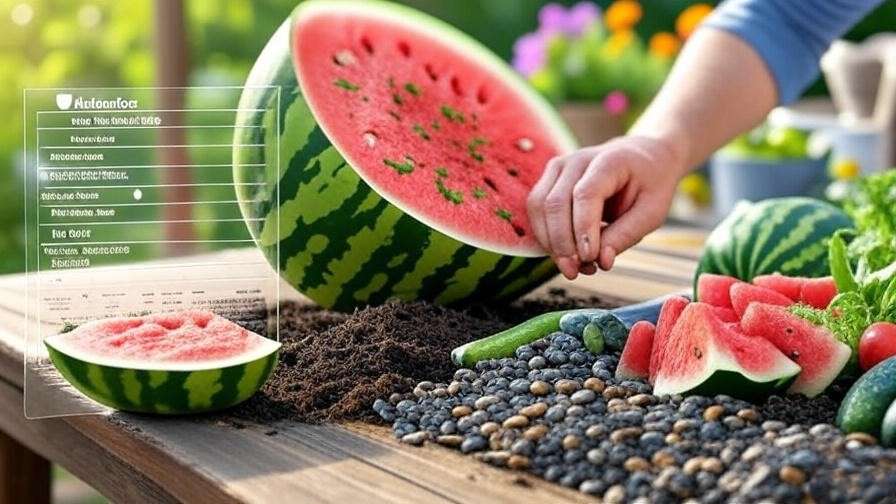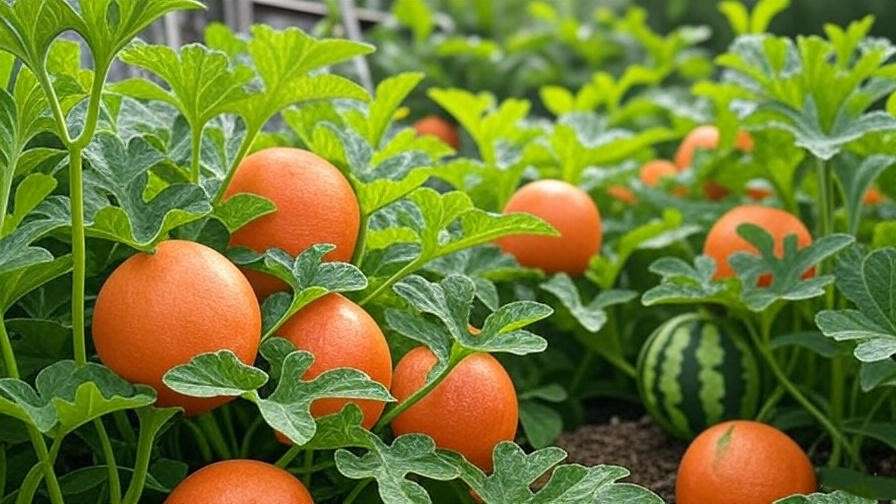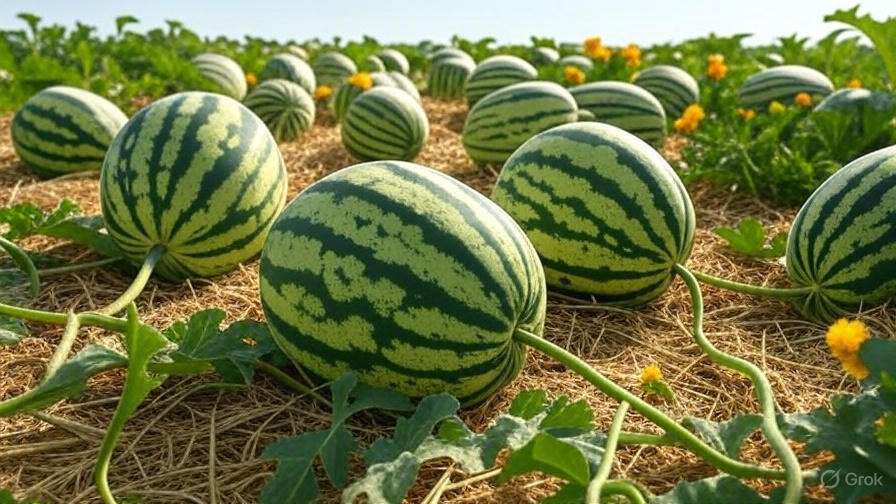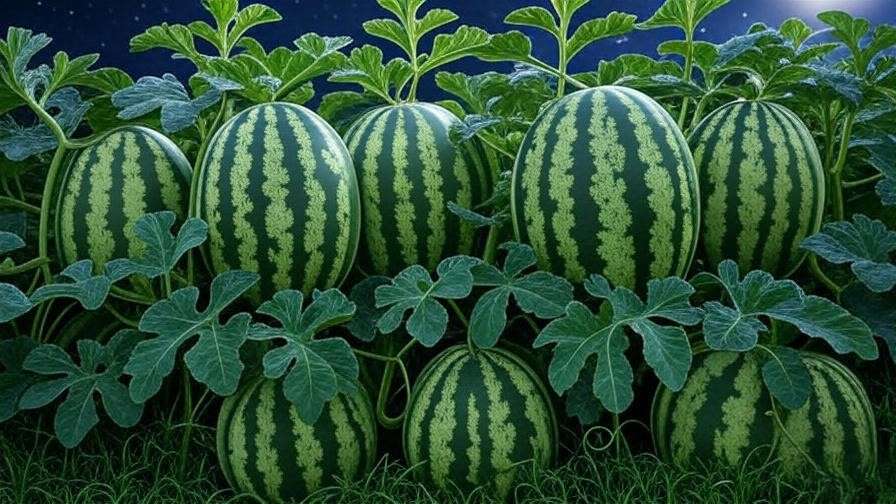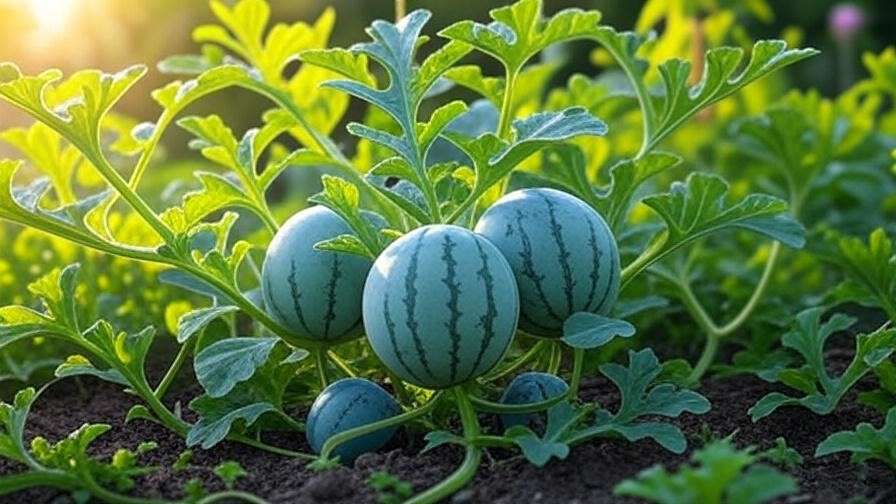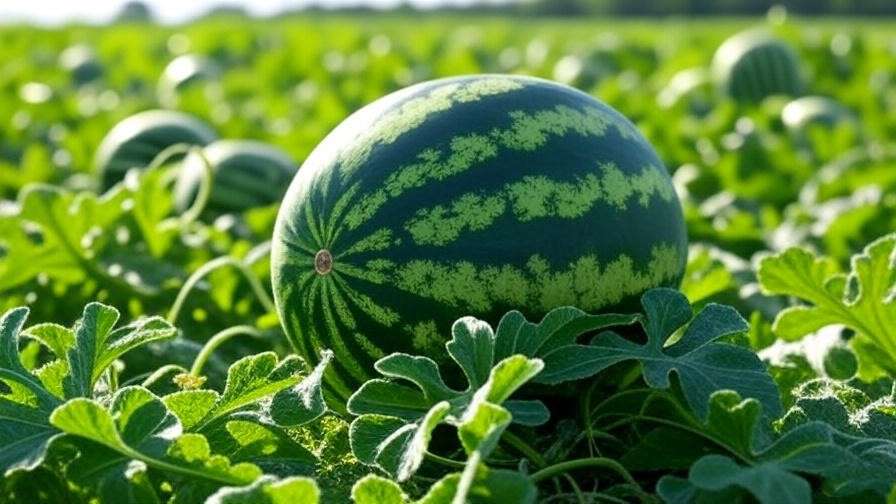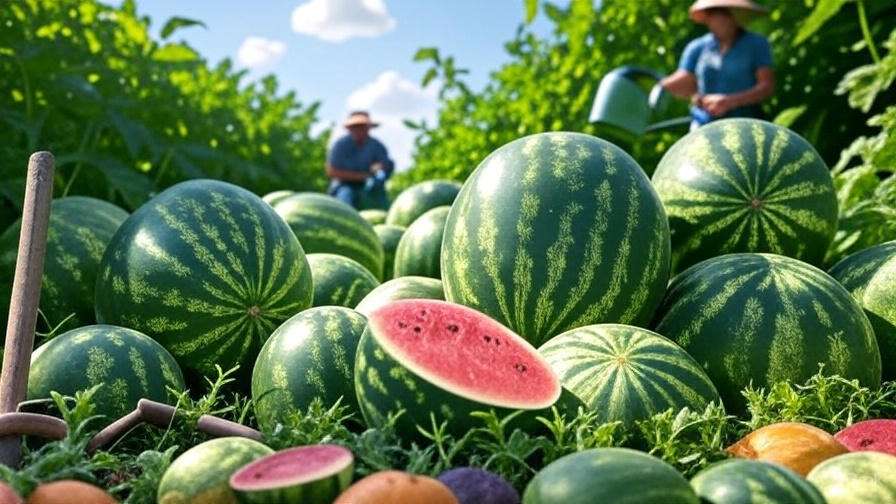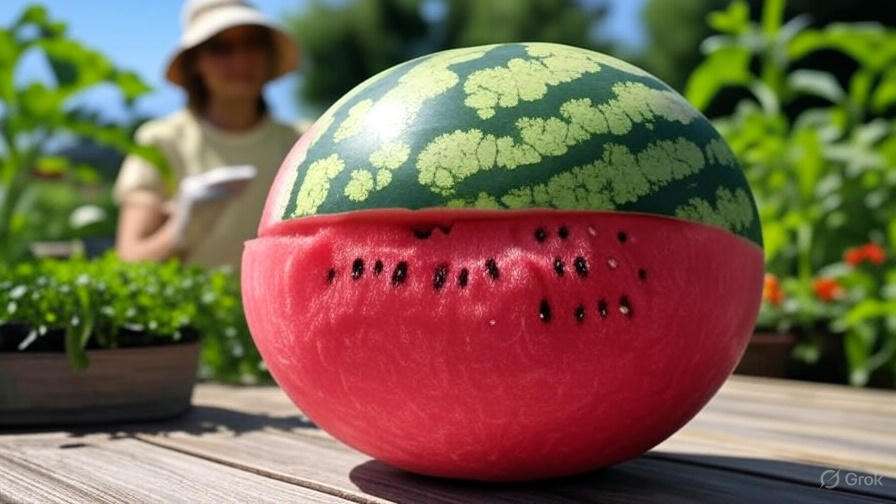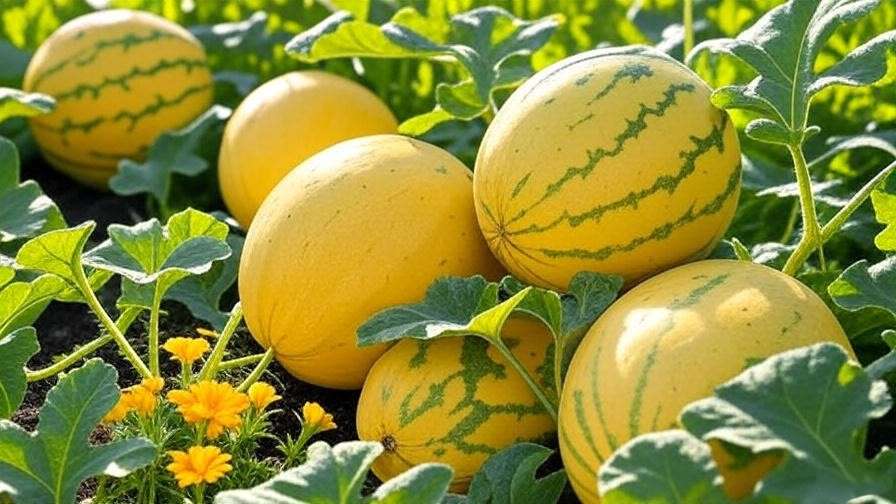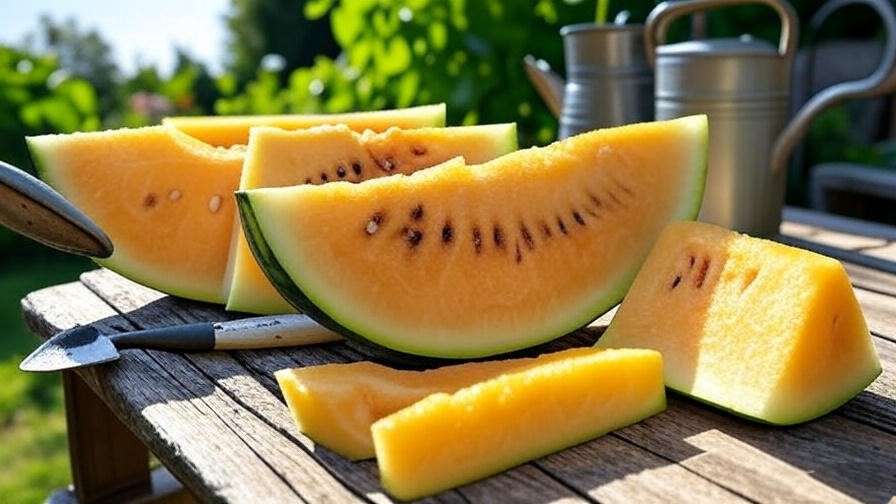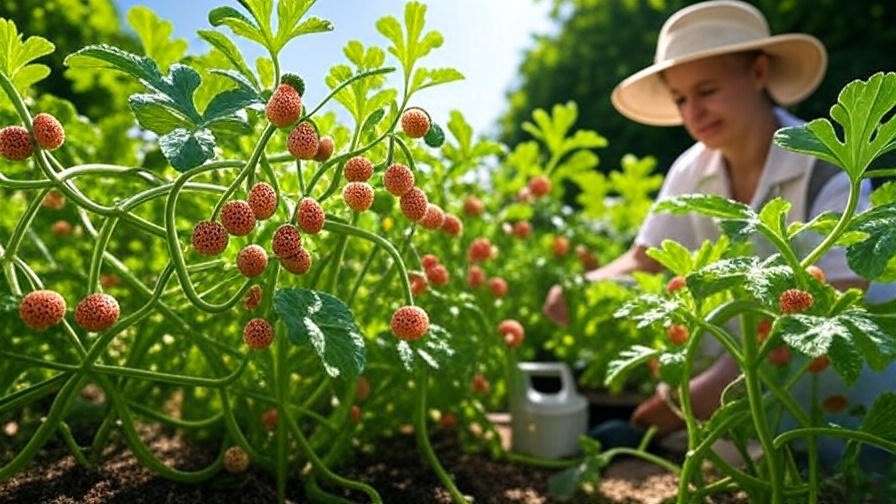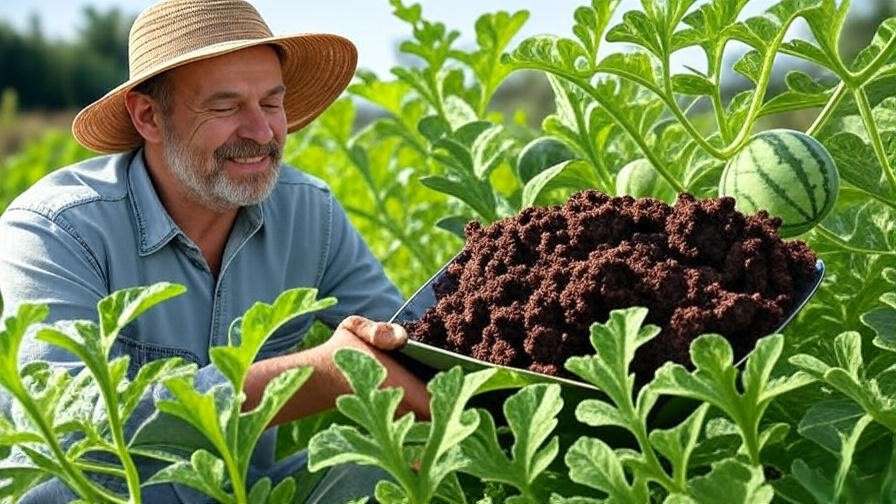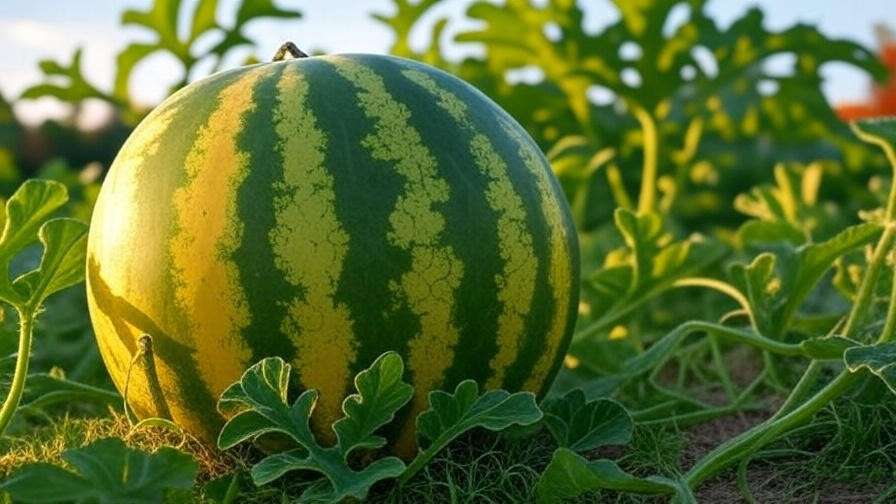Picture this: you’re slicing into a juicy watermelon on a hot summer day, scooping out the vibrant red flesh, and tossing those pesky seeds into the compost bin. But what if those tiny seeds were a hidden treasure? The nutrition facts of watermelon seeds reveal they’re not just edible—they’re a nutritional powerhouse and a gardener’s best friend! Packed with protein, healthy fats, and essential minerals, watermelon seeds can boost your health while kickstarting a thriving watermelon patch. In this comprehensive guide, we’ll explore their nutritional benefits, health perks, culinary uses, and expert gardening tips to help you make the most of these underrated gems. Ready to rethink those seeds? Let’s dive in!
1. What Are Watermelon Seeds? An Overview 🌿
Watermelon seeds are the small, nutrient-dense kernels found inside watermelons (Citrullus lanatus), a beloved fruit native to Africa. Often overlooked, these seeds come in varieties like black, white, or striped, each with unique uses in cooking and gardening. Historically, watermelon seeds have been consumed in cultures worldwide, from African snacks to Asian delicacies, and they’re now gaining traction in health-conscious diets and sustainable gardening.
1.1 The Basics of Watermelon Seeds
- Types: Black seeds are mature and ideal for planting or eating; white seeds are immature and softer, often used in culinary dishes; striped seeds are typically hybrids.
- Cultural Significance: In regions like Nigeria and China, roasted watermelon seeds are a popular snack, valued for their crunch and nutrition.
- Common Misconceptions: Many believe watermelon seeds are toxic or indigestible. In reality, they’re safe and nutritious when prepared properly.
1.2 Why Watermelon Seeds Are Trending
The rise of plant-based diets and zero-waste lifestyles has spotlighted watermelon seeds. Nutritionists praise their nutrient density, while gardeners value their role in growing juicy, homegrown watermelons. “Watermelon seeds are a perfect example of nature’s efficiency—nutritious for us and vital for the plant,” says Dr. Sarah Thompson, a registered dietitian. Horticulturist James Lee adds, “High-quality seeds are the foundation of a healthy watermelon crop.”
2. Nutrition Facts of Watermelon Seeds 🥗
Watermelon seeds are a nutritional goldmine, offering a balanced mix of macronutrients, micronutrients, and fiber. Below is a detailed breakdown based on a 1-ounce (28g) serving of roasted watermelon seeds, sourced from USDA data.
| Nutrient | Amount per 1 oz (28g) | % Daily Value |
| Calories | 160 kcal | 8% |
| Protein | 8 g | 16% |
| Total Fat | 13 g | 20% |
| Saturated Fat | 2.5 g | 13% |
| Carbohydrates | 4 g | 1% |
| Dietary Fiber | 1 g | 4% |
| Magnesium | 140 mg | 35% |
| Iron | 2 mg | 11% |
| Zinc | 2.9 mg | 26% |
| Phosphorus | 214 mg | 31% |
2.1 Macronutrients Breakdown
Watermelon seeds are rich in protein (8g per ounce), making them a great plant-based protein source for vegetarians and athletes. Their healthy fats, including omega-6 fatty acids, support heart health, while low carbs (4g) make them keto-friendly. Compared to pumpkin seeds (10g protein) or chia seeds (5g protein), watermelon seeds hold their own as a nutrient-dense snack.
2.2 Micronutrients and Their Benefits
- Vitamins: Watermelon seeds contain B vitamins like folate (16 mcg, 4% DV) and niacin, which support energy production and cell health.
- Minerals: High in magnesium (35% DV), iron (11% DV), zinc (26% DV), and phosphorus (31% DV), they promote bone health, immunity, and muscle function.
- Antioxidants: Polyphenols and phytosterols in seeds combat oxidative stress, reducing inflammation.
2.3 Dietary Fiber and Digestive Health
With 1g of fiber per ounce, watermelon seeds aid digestion and promote a healthy gut microbiome. While not as fiber-rich as chia seeds (10g per ounce), they’re a tasty way to boost intake. A 2020 study in Nutrients highlights seeds’ role in supporting gut health.
Expert Tip: “Incorporate watermelon seeds into your diet for a nutrient boost without the calorie overload,” advises Dr. Thompson.
3. Health Benefits of Watermelon Seeds 💪
Beyond their impressive nutrition profile, watermelon seeds offer tangible health benefits, making them a must-have for wellness enthusiasts.
3.1 Boosting Heart Health
The healthy fats in watermelon seeds, particularly omega-6 fatty acids, help lower LDL (“bad”) cholesterol levels. Magnesium supports blood pressure regulation, reducing heart disease risk. A 2019 study in The American Journal of Clinical Nutrition found that magnesium-rich diets correlate with a 12% lower risk of cardiovascular issues.
3.2 Supporting Muscle Growth and Recovery
With 8g of protein per ounce, watermelon seeds are a post-workout powerhouse. Their amino acids aid muscle repair, making them ideal for athletes or those on plant-based diets. Pair them with a banana for a recovery snack.
3.3 Enhancing Skin and Hair Health
Zinc and antioxidants in watermelon seeds promote collagen production and skin repair, reducing acne and signs of aging. “I started adding roasted watermelon seeds to my smoothies, and my skin has never looked better,” shares Lisa, a home gardener and health enthusiast.
3.4 Improving Digestive and Immune Health
Fiber supports regular digestion, while zinc and iron bolster immunity. A 2021 Journal of Immunology study noted zinc’s role in enhancing immune cell function, making watermelon seeds a smart addition during cold season.
Case Study: Maria, a 35-year-old vegan, incorporated watermelon seeds into her diet and reported improved energy and digestion within weeks, showcasing their real-world impact.
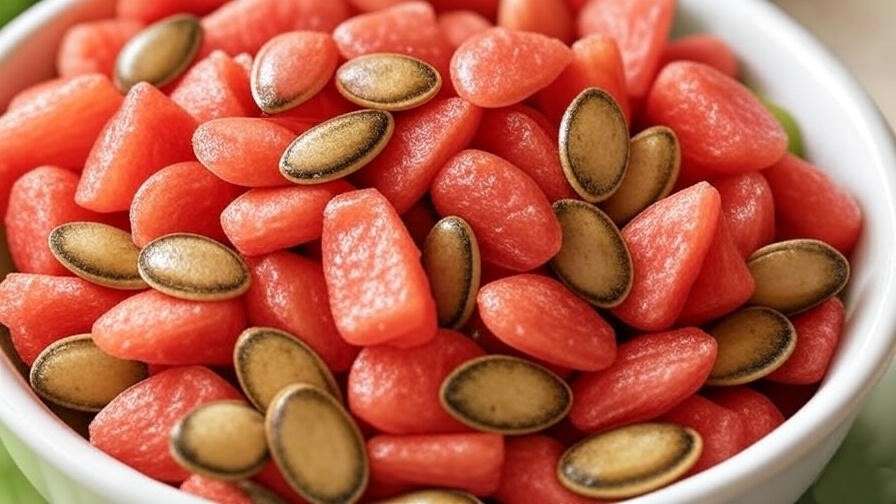
4. How to Use Watermelon Seeds in Your Diet 🍽️
Watermelon seeds are versatile and easy to incorporate into meals. Here’s how to prepare and enjoy them safely.
4.1 Preparing Watermelon Seeds for Consumption
- Clean: Rinse seeds to remove pulp, then pat dry.
- Dry: Air-dry or oven-dry at 160°F (71°C) for 24 hours.
- Roast: Toss with olive oil and spices, then roast at 350°F (177°C) for 15–20 minutes.
- Sprout: Soak seeds for 8 hours, then sprout for 1–2 days for enhanced nutrition.
4.2 Delicious Recipes with Watermelon Seeds
- Roasted Watermelon Seeds: Toss with salt, paprika, and cumin for a crunchy snack.
- Watermelon Seed Butter: Blend roasted seeds with a touch of oil for a nutty spread.
- Salad Topping: Sprinkle on salads for texture and nutrition.
Recipe Example: Spicy Roasted Watermelon Seeds
- Ingredients: 1 cup watermelon seeds, 1 tsp olive oil, ½ tsp chili powder, pinch of salt.
- Instructions: Clean and dry seeds, toss with oil and spices, roast at 350°F for 15 minutes. Enjoy!
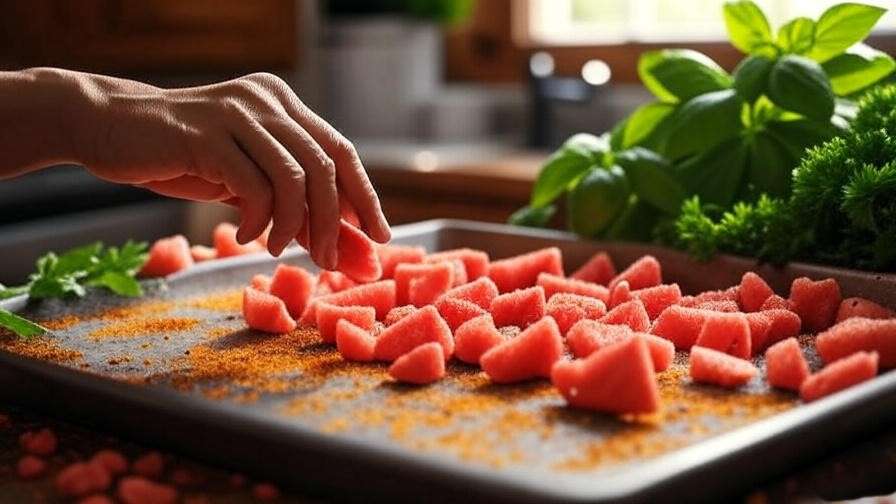
4.3 Safety and Precautions
Watermelon seeds are safe for most, but overconsumption may cause digestive discomfort due to their fiber and fat content. Stick to 1–2 ounces daily. Those with seed allergies should consult a doctor.
Visual Idea: Include images of roasted seeds or a seed butter jar to boost engagement.
5. Watermelon Seeds in Gardening: Growing Your Own 🌾
Watermelon seeds aren’t just for eating—they’re the starting point for growing your own juicy, homegrown watermelons. Whether you’re a seasoned gardener or a beginner, understanding how to select, plant, and care for watermelon seeds can transform your backyard into a thriving oasis.
5.1 Selecting High-Quality Watermelon Seeds
Choosing the right seeds is critical for a successful harvest. Look for these qualities:
- Maturity: Opt for black, mature seeds, as white seeds are often immature and less viable.
- Source: Purchase organic or heirloom seeds from reputable suppliers like Burpee or Seed Savers Exchange for genetic diversity and quality.
- Storage: Ensure seeds are dry and stored in a cool, dark place to maintain viability.
Expert Insight: “Always check the seed packet for germination rates and planting zones,” advises horticulturist James Lee. “Heirloom varieties like ‘Crimson Sweet’ are excellent for both flavor and seed-saving.”
5.2 Planting and Caring for Watermelon Seeds
Watermelons thrive in warm, sunny conditions. Follow these steps for success:
- Soil Preparation: Use well-draining, loamy soil with a pH of 6.0–6.8. Add compost or organic fertilizer to boost nutrients.
- Planting: Sow seeds 1 inch deep, 2–3 feet apart, in rows or hills. Plant after the last frost when soil temperatures reach 70°F (21°C).
- Watering: Keep soil consistently moist but not waterlogged. Water deeply once a week, especially during fruit development.
- Sunlight: Ensure 6–8 hours of direct sunlight daily.
- Common Mistakes: Avoid overwatering, crowding plants, or planting too early in cold soil.
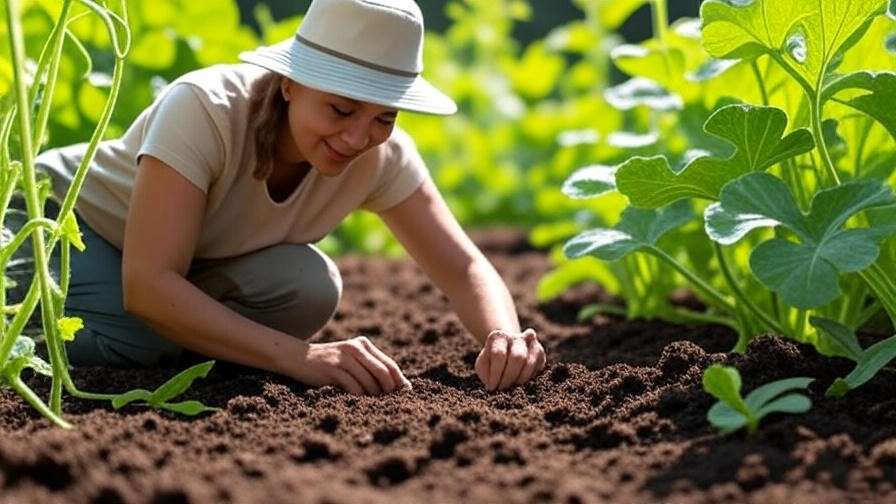
Pro Tip: Mulch around plants to retain moisture and deter weeds.
5.3 From Seed to Harvest: What to Expect
- Germination: Seeds sprout in 4–10 days under optimal conditions.
- Growth: Vines develop over 30–50 days, followed by flowering and fruit set.
- Harvest: Most varieties mature in 70–90 days, yielding 2–4 melons per plant. Look for a yellowing underside and a dull thud when tapped.
Case Study: Emma, a home gardener in Texas, planted ‘Sugar Baby’ watermelon seeds and harvested 10 melons in her first season by following proper spacing and watering techniques. Her success highlights the rewards of careful seed care.
SEO Tip: Use long-tail keywords like “how to plant watermelon seeds” or “grow watermelons at home” to capture gardening-related searches.
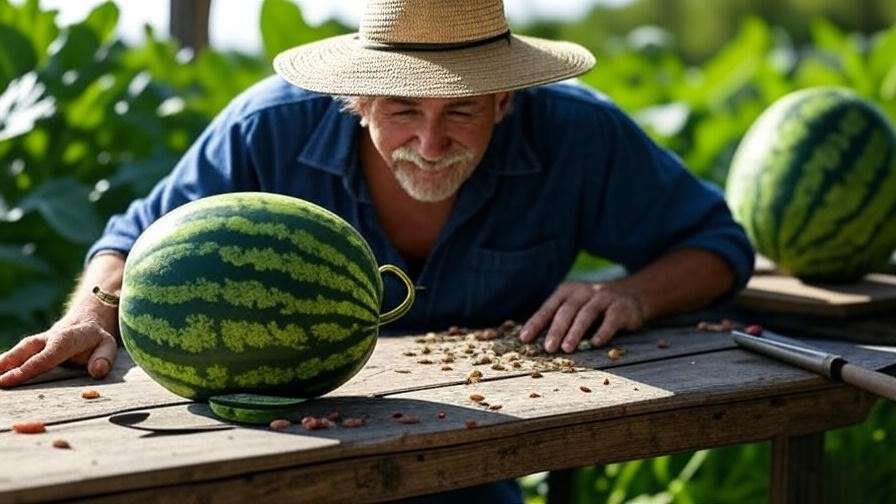
6. Sustainability and Watermelon Seeds 🌍
Watermelon seeds align perfectly with eco-friendly practices, supporting both personal health and environmental health.
6.1 Reducing Food Waste
Instead of tossing watermelon seeds, repurpose them for eating or planting. This zero-waste approach minimizes landfill contributions. “Using every part of the watermelon—flesh, rind, and seeds—embodies sustainable living,” says environmental advocate Dr. Maria Gonzalez. Composting inedible seed remnants further enriches your garden soil.
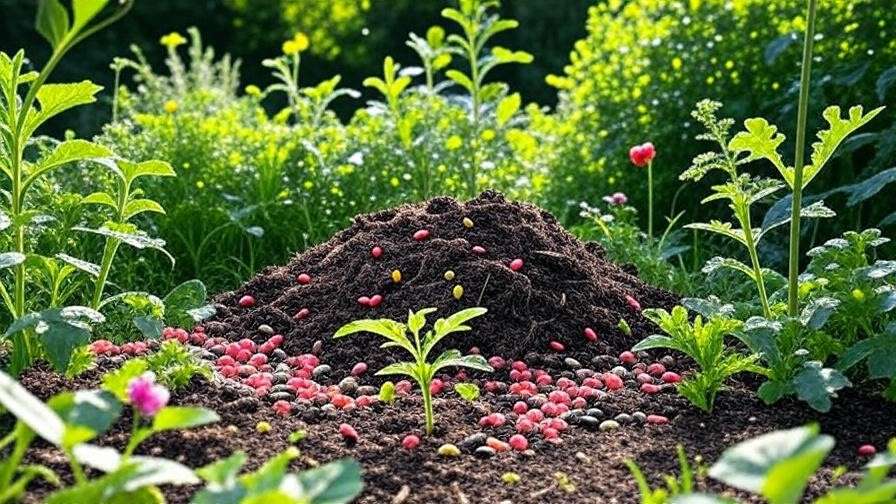
6.2 Supporting Biodiversity
Planting heirloom watermelon seeds preserves genetic diversity, protecting against crop monocultures. Varieties like ‘Moon and Stars’ or ‘Black Diamond’ maintain unique flavors and resilience. By saving and sharing seeds, gardeners contribute to global biodiversity efforts, a focus of organizations like Seed Savers Exchange.
Call to Action: Save your watermelon seeds this summer! Roast them for a snack or store them for next season’s garden to reduce waste and support sustainability.
7. FAQs About Watermelon Seeds ❓
These frequently asked questions address common queries, optimized for voice search and featured snippets.
- Q1: Are watermelon seeds safe to eat?
Yes, watermelon seeds are safe when cleaned and prepared (roasted or sprouted). They’re rich in nutrients but should be consumed in moderation (1–2 oz daily). - Q2: Can watermelon seeds help with weight loss?
Their high protein and fiber content promotes satiety, potentially aiding weight management when paired with a balanced diet. Consult a dietitian for personalized advice. - Q3: How do I store watermelon seeds for planting?
Dry seeds thoroughly, store in an airtight container in a cool, dark place, and use within 4–5 years for best germination rates. - Q4: What’s the difference between black and white watermelon seeds?
Black seeds are mature and ideal for planting or eating; white seeds are immature, softer, and less viable for gardening but edible when cooked. - Q5: Can I eat watermelon seeds raw?
Raw seeds are safe but harder to digest. Roasting or sprouting enhances flavor and nutrient absorption.
8. Conclusion: Embrace the Power of Watermelon Seeds 🎉
Watermelon seeds are more than a byproduct—they’re a nutritional and gardening treasure. From their impressive protein, healthy fats, and minerals to their role in growing vibrant watermelon plants, these tiny kernels pack a punch. Whether you’re roasting them for a heart-healthy snack, blending them into a smoothie, or planting them for a bountiful harvest, watermelon seeds offer endless possibilities. Start small: try a roasted seed recipe or plant a few seeds in your garden. Share your experiences in the comments or on social media to inspire others!

